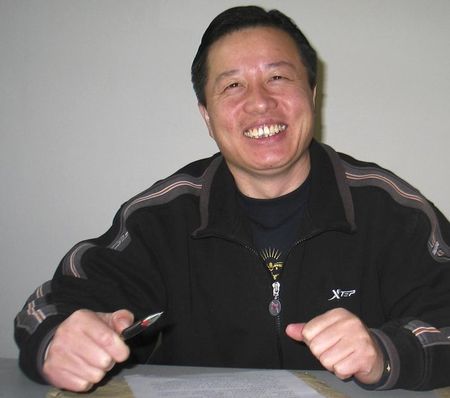By James Pomfret
GUANGZHOU China (Reuters) - Lawyers representing a prominent Chinese activist boycotted the start of a long-delayed trial in protest over procedural irregularities on Friday, in a closely watched case as China ramps up a clampdown on rights campaigners.
Guo Feixiong, 48, a writer and well-known advocate of citizen's rights based in the southern Chinese city of Guangzhou, was arrested for taking part in a rare public protest against media censorship outside the offices of the Southern Weekly newspaper last January.
Guo will be tried alongside another activist Sun Desheng, 32, who was also at the newspaper protest, on a charge of "gathering crowds to disturb public order".
Chen Guangwu, one of Guo's lawyers, said all four of the lawyers representing the two men would boycott the trial given a failure by authorities to grant them at least three days advance notice to prepare for the trial, and for refusing to allow him to take a laptop computer into the courtroom.
"We can't accept this," he told Reuters. "If there are no lawyers present, under Chinese law they can't in theory continue ... but they might find someone else to represent them."
Chen, however, said he would still show up to try to negotiate a way forward with court officials.
Security was tight outside the Guangzhou People's Court on a leafy street, with dozens of police blocking roads.
The bespectacled Guo, whose real name is Yang Maodong, helped push the rights defence movement for over a decade and has provided legal aid to victims of corruption. He was previously jailed for several years.
Under the court's indictment, the defendants were accused of having disregarded laws and acted as "ringleaders in gathering crowds to seriously disrupt order in public places".
Other rights defenders have also been targeted by authorities over the past year including Tang Jingling.
Guo's case is the latest involving a number of activists detained or formally arrested on charges of disrupting order in a public place. Rights groups say the charge is tantamount to punishment for forming organisations that criticise government policies.
While President Xi Jinping has launched a hard-hitting campaign against corruption, his administration has shown little tolerance for critical voices in a continuing crackdown against human rights defenders and a tightening of media censorship.
"Xi Jinping's government seems bent on destroying a community that is arguably one of its best and most moderate assets in addressing serious problems inside China," said Sophie Richardson, China director at Human Rights Watch, in a statement.

"Guo Feixiong should be serving as an anti-corruption adviser to senior leaders, not becoming another victim of their politicised campaigns."
(Reporting by James Pomfret; Editing by Jeremy Laurence)
